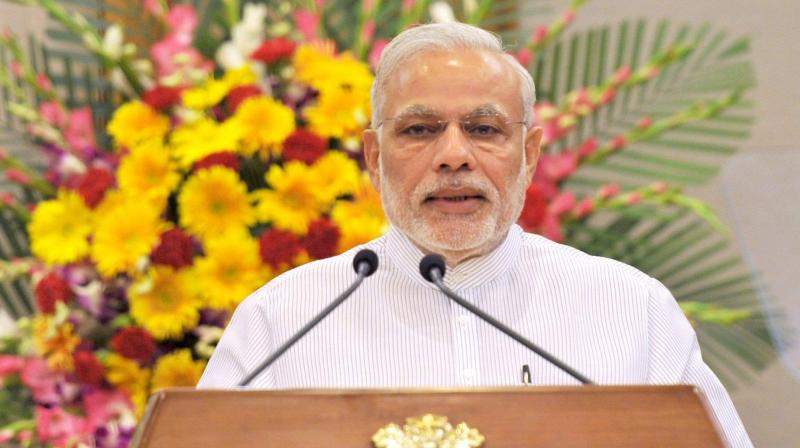Nationalism' apart, it is a sketchy roadmap
A ruling party with serious plans, if it gained an encore, is not expected to issue its charter of intentions just three days before polling begins.

It is hard to believe that the “Sankalp Patra” — or a document of resolve — issued on Monday is all that the BJP could summon by way of its election manifesto for the Lok Sabha polls, for which voting begins as early as Thursday.
Much of the declaration in lofty, if jaded, language seems recycled hot air from the time the party was an unheard of entity that couldn't dream of getting into the driver's seat. The desire to be seen as strong nationalists —while political opponents are deemed not strong enough to shoulder the burden of nationalism — permeates through the document, as does tub-thumping.
However, there is little to suggest that this is a document put together by a party that has ruled a vast country like India for the past five years, even if the performance is widely viewed to be of indifferent quality.
A ruling party with serious plans, if it gained an encore, is not expected to issue its charter of intentions just three days before polling begins. This suggests the inclination to not show its hand.
From the party the BJP was until the last Lok Sabha election in 2014, to what it has become now, may be gauged from a striking fact that emerges from the manifesto. Five years ago, the party was still collegial. A photo of top leaders was on the cover page. This time that approach was junked. Only Prime Minister Narendra Modi stares down from the cover.
A new slogan has been added to bolster the saffron party’s “nationalist” credentials — the removal of Article 35A of the Constitution, which is a subset of Article 370, that links J&K to India, if it returned to power. This demand has in recent years been raised by an obscure outfit, which has taken to matter to the Supreme Court. Proponents of the idea are evidently ignorant of the history, and the implications of striking down Article 35A. It is shocking that the ruling party is supporting the plan.
All the mumbo-jumbo of 2014 is out. No promises of achche din, jobs creation, elimination of black money, and revving up the economy. To increase employment, the BJP proposes to identify 22 “champion sectors” of the economy. That's it. There is no roadmap, no learning from the resounding failure of the "Make in India". Now the '6,000 per year for farmers with small landholdings is to be extended to all farmers, including the rich ones, but this Rs 17 per day scheme will not extend to sharecroppers and farm workers.
Anyway, it may be argued that a party like the BJP does not need a manifesto. It operates on the basis of dog-whistle signalling to its core social constituency. The state of the economy or society is not strictly relevant.
